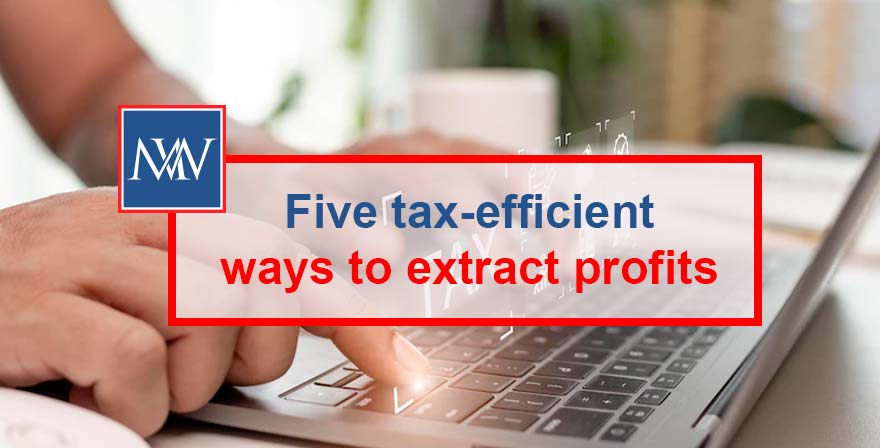If you run your business as a personal or family business, you may have to take some or all of the profits for yourself. When it comes to taxes, not all ways of making money are the same. The best way for you to take out profits will depend on your personal situation, but you should think about the following five ways as part of a tax-efficient plan for taking out profits.
Method 1: salary
If a person hasn’t used up their personal allowance elsewhere, paying them a small salary can help them save money on taxes. Paying a salary that is at least equal to the lower earnings limit for National Insurance (£6,396 for 2022/23) will make the tax year a qualifying year for the state pension. This can be helpful if the recipient doesn’t already have the 35 qualifying years needed for a full state pension.
For 2022/23, the best salary will depend on whether or not the National Insurance Employment Allowance is available to cover the employer’s National Insurance on the salary. Assuming the personal allowance stays the same, the best salary is one equal to the primary threshold for 2022/23, which is £11,908. This is because the Employment Allowance is not available in a personal company where the only employee is also a director. If the Employment Allowance is available or one of the higher secondary Class 1 National Insurance thresholds applies, the best salary is the personal allowance, which is set at £12,570 for 2022/23.
Method 2: dividends
Dividends are paid out of profits that have already been taxed. This means that the profits that are used to pay dividends have already been taxed. All taxpayers get a dividend allowance, which is set at £2,000 for 2022/23. If this allowance is still available, paying a dividend up to this amount lets profits be taken out without paying any more taxes. Once the best salary has been paid and the dividend allowance has been used up, if more money needs to be taken out of the company, it is usually better to take dividends instead of a higher salary because dividend tax rates are lower and there is no need to pay National Insurance on dividends.
Remember that dividends must be given out in proportion to the number of shares owned. But using an alphabet share structure keeps options open. Remember that you can only pay dividends if you have enough profits left over to do so.
Method 3: rent
Home is where many small or family businesses are run. The company can pay rent to the director to use one of his rooms. This can be good for taxes because the company can deduct the rent it pays when figuring out its profits for corporation taxes. Even though the director has to pay taxes on the rent, if the director doesn’t have any other rental income, he or she may be able to use the property income allowance to get £1,000 of rent without paying taxes on it. The other good thing about paying rent is that you don’t have to pay National Insurance.
Method 4: Contributions to a pension
The company can also put money into the director’s (and/or his or her family’s) pension. Most of the time, the company will be able to take the full amount of the pension contributions out of its profits. As long as the contributions don’t go over the annual allowance or push the total tax-free contributions over the lifetime allowance, the recipient won’t have to pay taxes on them.
Method 5: benefits-in-kind
It can be very tax-efficient for a company to give exempt benefits in kind to directors and family employees, like a cell phone or a place to park at work. The person receiving the benefit doesn’t have to pay taxes on it, and the company can deduct the cost from its taxable profit. When an exemption applies, the company doesn’t have to pay Class 1A National Insurance, and employees don’t have to pay National Insurance on most benefits in kind.
Even if there is a tax charge, benefits-in-kind can still be tax-efficient. For example, it may be better for the employee to have an electric company car instead of getting a raise to pay for the car. Giving an employee a benefit instead of extra pay will also save on their National Insurance, since most benefits-in-kind are subject to Class 1A (employer-only) instead of Class 1.

